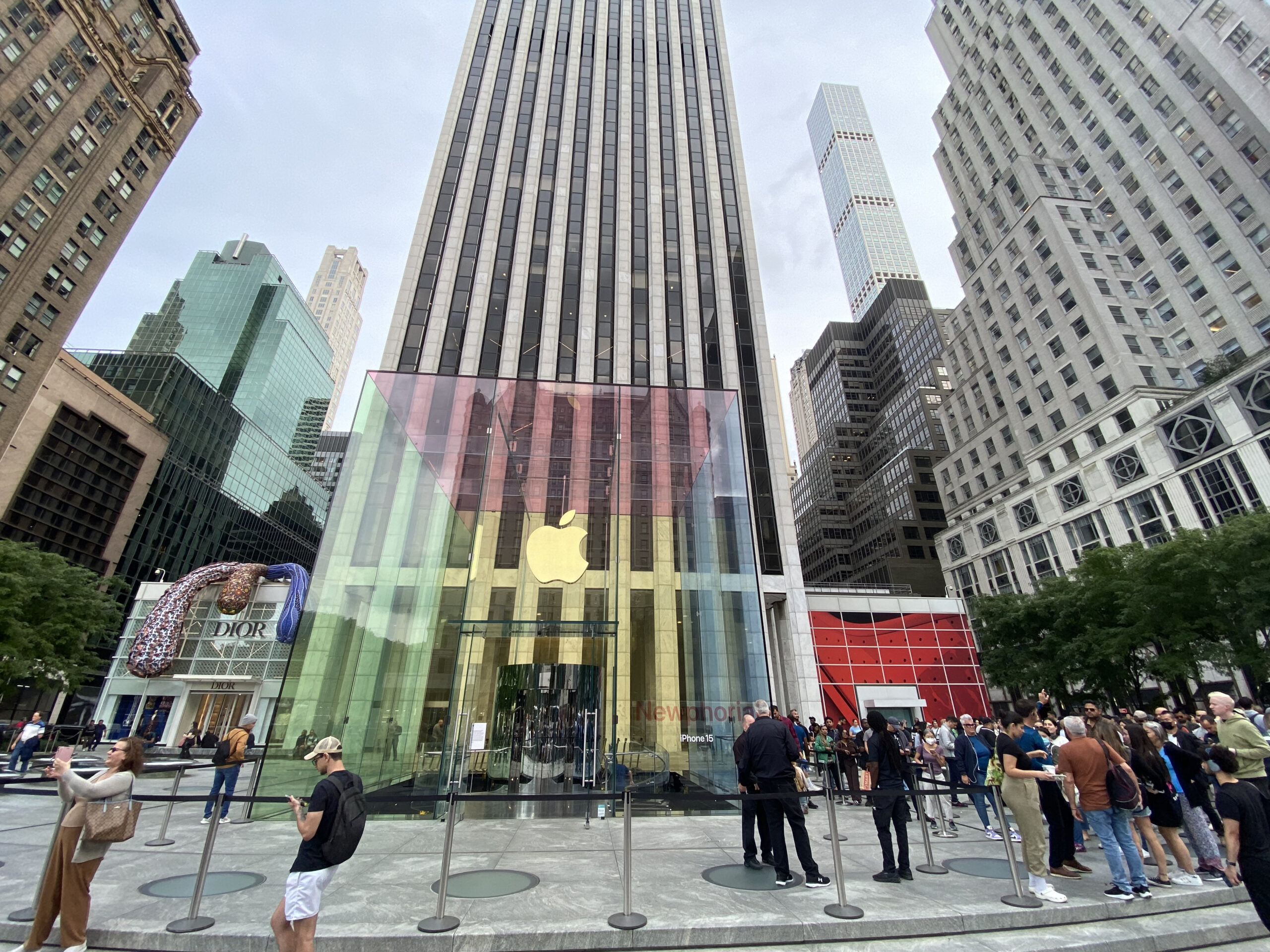First Sale Hearing in the Big Apple
As part of its on-going copyright review, the House IP Subcommittee held a hearing on Monday on the First Sale Doctrine. This was a “field hearing” held at the federal courthouse in Manhattan. I had the opportunity to testify on behalf of the Owners’ Rights Initiative, a coalition of associations and companies dedicated to protecting the first sale doctrine.
In his opening statement, Chairman Bob Goodlatte recognized the importance of the first sale doctrine to the U.S. economy. He stated that
Although some legal doctrines may be invisible to Americans, the first sale doctrine is not one of them. First sale has been such an integral part of our economy that entire businesses have been built upon it such as Blockbuster video stores and Netflix by mail. Consumer expectations have also been built upon this doctrine.
Ranking Member Jerry Nadler in his opening statement noted the importance of the first sale doctrine to libraries and consumers.
The testimony and the questions focused on three questions: the Supreme Court’s Kirtsaeng v. Wiley decision; digital first sale; and the right to resale products containing software essential to their operation.
1. Kirtsaeng. Stephen Smith, the President and CEO of John Wiley & Sons, the plaintiff in the Kirtsaeng case, testified that the decision is making it difficult for Wiley to sell text books in developing foreign markets for fear of arbitrage, i.e., that the books would be resold in the United States at lower prices. Smith acknowledged, however, that in some markets Wiley is selling through trusted distributors that do not resell in the U.S., and that it has started differentiating products (e.g., creating international editions) to discourage importation.
In my testimony for ORI, I underscored these concessions Smith had made. I stressed that post-Kirtsaeng, publishers still could engage in price discrimination against U.S. consumers, they just couldn’t rely on the copyright laws to do so. I added that the Supreme Court made clear that nothing in the Constitution suggests that copyright’s exclusive rights should include the right to price discriminate. I also emphasized that overturning Kirtsaeng would not help U.S. workers. Because most copyrighted products are made overseas, increased foreign sales would not lead to more manufacturing jobs in the United States. I reminded the subcommittee that this issue was not limited to books; the previous Supreme Court cases in this area dealt with a logo on a watch (Costco v. Omega) and a label on a shampoo bottle (Quality King v. L’anza).
Greg Cram, the Associate Director for Copyright and Information Policy at N.Y. Public Library, explained the importance of the Kirtsaeng decision for libraries. Many of the books and other materials in the collections of libraries were printed overseas, and Kirtsaeng ensures that libraries will be able to circulate these materials without obtaining an additional license.
The subcommittee members showed relatively little interest in discussing Kirtsaeng. Ranking Member Nadler asked Smith whether Wiley was seeking legislation overturning Kirtsaeng. Smith responded in the affirmative. Nadler then asked Cram whether overturning Kirtsaeng would require an exception for libraries, and Cram responded in the affirmative.
I regret not having more of an opportunity to respond to Smith’s criticism of arbitrage. It was as if he thought arbitrage was a dirty word. This was ironic given that the federal courthouse stands a few hundred yards from Wall Street, where thousands of traders engage in arbitrage every day. Arbitrage is a cornerstone of free trade and the free enterprise system (buy low, sell high).
2. Digital First Sale. Most of the witnesses addressed this issue. Sherwin Siy (Public Knowledge) and John Ossenmacher (ReDigi) testified in favor of a digital first sale right, while Stephen Smith (Wiley), Ed Shems (an illustrator), Matthew Glotzer (a media consultant who has worked in the motion picture industry), and Emery Simon (Business Software Alliance) argued against a first sale right. Professor John Villasenor of UCLA took an interesting middle ground. Although he opposes amending the Copyright Act to provide for digital first sale, he believes that content companies must do a much better job disclosing to consumers their rights when they access digital content. He feels that if consumers clearly understood when they were renting content as opposed to buying it, the market would quickly respond to consumer expectations (e.g., a rental would cost less than a sale).
Most of the subcommittee members’ questions at the hearing centered on digital first sale, expressing particular concern that a digital right sale right would facilitate infringement. Ossenmacher responded that services such as RiDigi could actually reduce infringement by causing consumers to place greater value on their digital copies. In essence, if they knew they could sell their copies, they wouldn’t upload them and given them away to the world for free.
The members also were concerned about the impact a secondary digital market would have on the primary market because the copies on the secondary market would be of equal quality to the copies on the primary market. Unlike physical copies, digital copies do not deteriorate. Ossenmacher responded by noting that some products in the physical world, such as diamonds, do not deteriorate, and yet we allow them to be resold.
Chairman Goodlatte zeroed in on the issue of consumer expectations. He said that when he purchases an e-book for a lower price than a physical book, he does not expect to have the same set of rights as he would with the physical book.
3. Essential Software. In my testimony, I drew the subcommittee’s attention to an aspect of first sale that affects a specific category of tangible goods: products that are distributed with software essential to their operation. Even though consumers buy the physical products, ranging from computers to toasters, some manufacturers claim that they are just licensing the software essential to the products’ operation. The manufacturers further claim that because the consumers are just licensees, they do not have the first sale right to transfer the software when they sell the rest of the product. These licenses may have other restrictive terms that interfere with the resale of the products, for example, specifying that only the original licensee will receive security patches or bug-fixes. By interfering with resale, these license terms harm both the consumers who want to sell the products and the secondary consumers—often government agencies–that want to buy them.
The license terms are also harmful to cyber-security. If the manufacturer refuses to provide the secondary consumer with security patches, the security of the computer system could be compromised. Further, resale rights help the environment by keeping recycled products out of landfills.
Congressman Jason Chaffetz of Utah asked several questions concerning this issue. First, he asked how widespread this problem was. I responded that although currently this issue was mainly confined to computer and telecommunications products, one could expect it to spread to other products as increasingly more products depend on software for their operation. For this reason, Congress should act now before the problem gets worse.
Second, Congressman Chaffetz asked whether this was a problem of copyright law, contract law, or both. I responded that it was both. Because the contract states that the consumer is just a licensee, and transfer of the software could constitute both a copyright infringement and a breach of contract.
Third, Congressman Chaffetz asked if addressing the essential software problem would contribute to piracy. I responded that unlike the digital first sale issue, which arguably implicates infringement, this problem does not. The consumer isn’t making additional copies; the copy of the software is contained within the product, and the copy is transferred when the product is transferred.
Later in the hearing, Congressman Nadler held up his iPhone, and asked Emery Simon (BSA) whether he would oppose a rule that allowed the transfer of the software essential to the operation of a device, while not permitting the unauthorized transfer of the apps on the device. Simon responded that there are many layers of software in devices, and it would be difficult to differentiate between them, i.e., to distinguish essential from non-essential software.
This is an unsatisfying answer. To be sure, there may be layers of software between an operating system and an app, and over time a manufacturer may choose to include more features in the operating system as they become industry standards, but this is not a bar to Congress acting in this area. Congress could identify a category of software that a consumer would be allowed to transfer along with the hardware product, and ambiguous situations, if any, would be resolved by the courts.
Jonathan Band is a DC-based attorney whose clients include Internet companies, providers of information technology, universities, library associations, and CCIA. He previously guest-posted on DisCo about his further thoughts about software interoperability.








